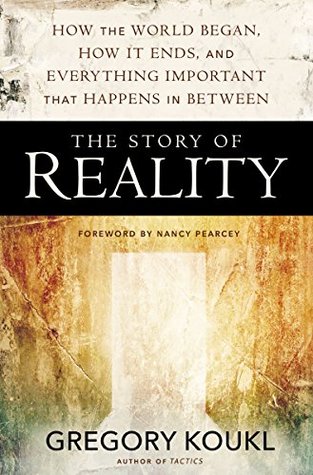More on this book
Community
Kindle Notes & Highlights
Read between
April 29 - May 27, 2017
The correct answer to the question “What is Christianity?” is this: Christianity is a picture of reality.2 It is an account or a description or a depiction of the way things actually are. It is not just a view from the inside (a Christian’s personal feelings or religious beliefs or spiritual affections or ethical views or “relationship” with God). It is also a view of the outside. It is a view of the world out there, of how the world really is in itself.
Since everyone—religious person, atheist, scientist, skeptic—believes his beliefs are true, it has always struck me as odd when some have been faulted simply for thinking their views correct. They’ve even been labeled intolerant or bigoted for doing so. But what is the alternative? The person objecting thinks his own views correct as well, which is why he’s objecting. Both parties in the conversation think they’re right and the other wrong. Why, then, is only the religious person (usually) branded a bigot for doing so?
Puzzles are a good way to think about worldviews since they are made up of lots of individual pieces too. When the pieces are fit together properly, you’re able to see the big picture clearly.
issue. They’re going to stumble on another point as well.
“Does it not make a great difference,” C. S. Lewis once observed, “whether I am, so to speak, the landlord of my own mind and body, or only a tenant, responsible to the real landlord? If somebody else made me, for his own purposes, then I shall have a lot of duties which I should not have if I simply belonged to myself.”3
God is an active player in the Story. He does not sit silently and idly by. He is the storyteller, but he is also a player in the drama. He shows up. Because he is there, we are not alone. Because he speaks, we are not in the dark. Because he participates, we are not forsaken. More important than anything else, because he makes himself known, then we can know him.6
It should not be surprising, then, when cultures consistently believe that there is nothing special about being human, that soon they deny ultimate moral obligations and unalienable human rights too. When man is reduced to a mere animal—when the force of one’s worldview logic demotes humans to mere biological machines—morality and human rights die and power is all that remains. This has happened with every communist regime, and happens with all governments as they get increasing secular. It cannot be otherwise.
So let us be clear. Jesus did not come to help us get along or teach us to take care of the poor or to restore “social justice.”1 To some, this assertion is a bold stroke, since they have been told just the opposite. This is because there are many noble people who are drawn to Jesus for his moral excellence (as they should be). However, often their admiration of his civic virtue has distracted them from a more important matter.
Now, when I say these four facts represent the overwhelming consensus of professional historians specializing in the life of Jesus, even the skeptical ones, I am speaking quite literally. The conclusion is the result of an exhaustive analysis surveying 1,400 academic sources published since 1975, printed in English, French, and German.7 Another work lists twelve commonly accepted facts,8 but these four will do for now.
We are so used to the physical burdens of this world that it is impossible for us to imagine the lightness of being we will experience when those burdens are lifted.


